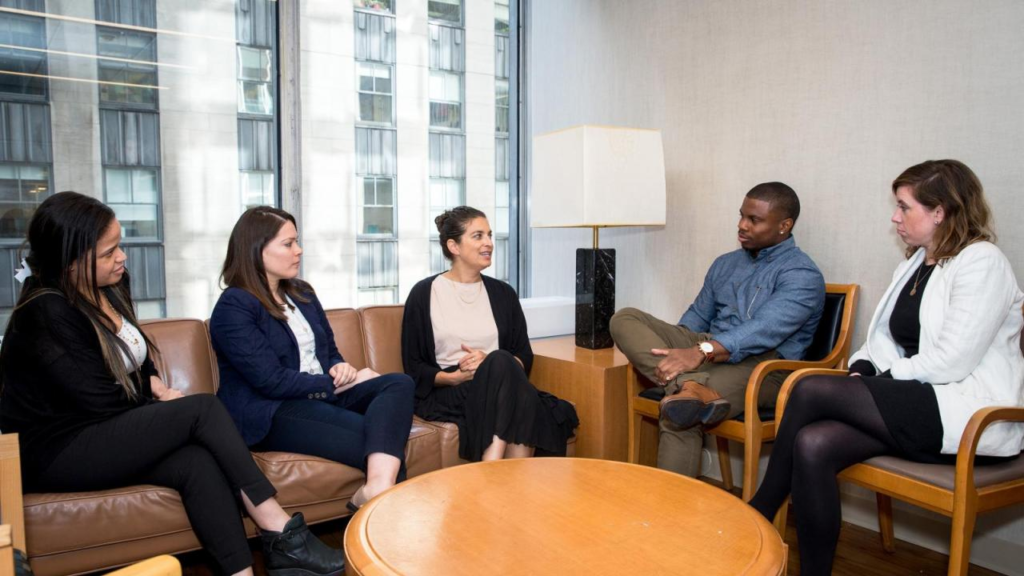Dialectical Behavioral Therapy
Do you often experience extremely intense negative uncontrollable emotions that are difficult to manage?
Are you struggling with interacting with others—friends, romantic partners, family members?

Dialectical behavior therapy (DBT) is a modified type of cognitive behavioral therapy (CBT). Its main goals are to teach people how to live in the moment, develop healthy ways to cope with stress, regulate their emotions, and improve their relationships with others. As its name suggests, DBT is influenced by the philosophical perspective of dialectics: balancing opposites. The therapist consistently works with the individual to find ways to hold two seemingly opposite perspectives at once, promoting balance and avoiding black and white—the all-or-nothing styles of thinking.
DBT therapy can help you better manage mood or behavior instability; poor self-image; negative, judgmental or rigid thinking; and relationship issues.
DBT has evolved to become an evidence-based psychotherapy approach that is used to treat many conditions like:
- Attention-deficit/hyperactivity disorder (ADHD)
- Bipolar disorder
- Borderline personality disorder (BPD)
- Eating disorders (such as anorexia nervosa, binge eating disorder, and bulimia nervosa)
- Major depressive disorder (including treatment-resistant major depression and chronic depression)
- Non-suicidal self-injury
- Obsessive-compulsive disorder (OCD)
- Post-traumatic stress disorder (PTSD)
- Substance use disorder
- Suicidal behavior
What to Expect with DBT Skills Classes
In our work together, you will develop new, practical skills you can take home and practice right away in order to reduce impulsive behaviors, regulate intense emotions and learn to create and sustain meaningful connections with others.
The DBT skills group is structured and educational so that you continue to learn and build new skills each session. DBT requires a significant commitment of time. In addition to regular therapy sessions, people are also required to do “homework” to work on skills outside of the individual, group, and phone counseling sessions. This may pose a challenge for people who have difficulty keeping up with these assignments on a regular basis.
A DBT skills group is not a quick fix; rather, it is for people who are motivated and willing to try something different to improve their lives.
Settings in which DBT are often used include
- Group therapy where patients are taught behavioral skills in a group setting.
- Individual therapy with a trained professional where a patient’s learned behavioral skills are adapted to their personal life challenges.
- Phone coaching in which patients can call the therapist between sessions to receive guidance on coping with a difficult situation they are currently in.
Our Dialectical Behavioral Therapy group focuses on four major skill areas.

- Mindfulness: reduce your suffering and develop skills to accept thoughts and urges without criticizing or impulsively acting on them. Learn to stay in the present moment without ruminating on the past or worrying about the future to improve your life.
- Interpersonal Effectiveness:learn strategies for asking for what you need, saying no and coping with interpersonal conflict to help you get your needs met without damaging a relationship.
- Emotion Regulation:learn skills to regulate out-of-control emotional states. Emotional regulation enables you to fully express yourself in helpful ways.
- Distress Tolerance:learn skills for coping with crises without reacting impulsively and making the situation worse.
Benefits of Dialectical Behavioral Therapy

- Acceptance and change:You’ll learn strategies to accept and tolerate your life circumstances, emotions, and yourself. You will also develop skills that can help you make positive changes in your behaviors and interactions with others.
- Behavioral:You’ll learn to analyze problems or destructive behavior patterns and replace them with more healthy and effective ones.
- Cognitive:You’ll focus on changing thoughts and beliefs that are not effective or helpful.
- Collaboration:You’ll learn to communicate effectively and work together as a team (therapist, group therapist, psychiatrist).
- Skill sets:You’ll learn new skills to enhance your capabilities.
- Support:You’ll be encouraged to recognize your positive strengths and attributes and develop and use them.
DBT Skills Classes
What is the cost for the DBT skills Open Group Sessions?
Group DBT Sessions are $85 for each session you attend in a group setting.
All classes are considered “Open Group” and participants can join in at any time. We only allow up to 8 participants at a time for group sessions.
Adult Group Meetings
- Tuesday Group: 10 a.m. to 11:30 a.m.
- Kingwood Location, possible virtual attendance
Teens Group Meetings
- Wednesday Group: 4:30 p.m. to 6:00 p.m.
- Kingwood Location, possible virtual attendance
Additional Information for Groups
Open Group Therapy Pricing
- Cost: $85 each session for Group Sessions
- Cost: One time fee of $175 for the initial 60-minute Intake Assessment before joining the group.
- Materials: Provided as a courtesy for your session!
- There are NO refunds or make-ups allowed for missed sessions.
Individual DBT Therapy Pricing
Clients who need additional assistance outside of the group with the application of their DBT skills, we offer individual therapy services. Individual therapy is where your diary card is reviewed in detail and personalized coaching is provided.
Your individual DBT sessions will begin with a 1-hour intake assessment, and the following individual therapy sessions are 90-minute appointments or two 45-minute appointments per week.
- 1-hour intake assessment: $175
- Two 45-minute individual therapy sessions per week: $150 each session OR One 90-minute session at $300
Get Started!
Please call us at 833-511-2228 to schedule your group or individual session.
You may also email us at info@inneractnow.com for more information on getting started.
